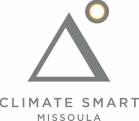|
Last October, I started my 11 month journey as an AmeriCorps Energy Corps service member with Climate Smart Missoula. I was thrilled to get started on my primary project, developing a pilot weatherization program aimed at enhancing energy efficiency, health and safety of manufactured homes, with an emphasis on homes built before the 1976 federal building code. I was surprised to learn that there are 6,000 manufactured homes in Missoula, and about half of them were built before this time. An estimated 1200 of these homes could be lost by 2025 due to deteriorating conditions and issues with moving them. To address and help preserve community members' homes, Climate Smart has partnered with NeighborWorks Montana, the Human Resource Council, and Home ReSource (full disclosure Climate Smart is in awe of our partner organizations). We're now a Team, and our Team has done a lot to set ourselves up for success: defining the scope of our efforts, building community awareness, engaging stakeholders, and providing resources directly to residents. I’m proud of our accomplishments. I’ll share a few examples of the work we’ve done this year and upcoming efforts: 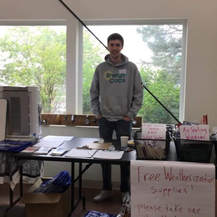 Resource Fair This Spring, our Team hosted the first ever Manufactured Home Resource Fair. Our goal: provide resources for manufactured home residents around Home Repair, Weatherization, Financing, Legal Counseling and Health. Along with our Team, a handful of local organizations joined. MUD co-hosted at their site. The National Center for Appropriate Technology (NCAT) generously donated “light weatherization materials”. We gave away LED lights, weather-stripping, window insulation kits, and water pipe insulation. Climate Smart provided informational pamphlets on the energy savings associated with each. These materials can benefit manufactured homes in particular because upgrades are especially cost-effective, given rates of heat loss and wasted energy. Participants were thrilled with what they received, and we have more left to give out! We're planning mini “pop up” fairs in manufactured home communities in July and August to provide resources directly to residents. To assist with financial counseling, HomeWord provided materials on their financial education program that can help residents looking to save for improvements on their homes. MoFi provided information on their small dollar loan program, a low interest loan specifically for manufactured home repairs. as did the Missoula Federal Credit Union. Additionally, Montana Legal Services offered legal counseling resources. 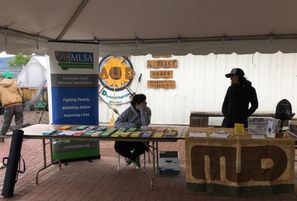 For help with home repair, MUD offered discounts to their “Tool Library” where folks can access tools for home repair projects. Home ReSource provided coupons for their store which has a plethora of hardware, tools, and home repair materials. Other groups shared assistance programs. The goal of the Fair was to support residents as they work to improve the safety, health, energy efficiency, livability and longevity of their homes, and ultimately to preserve existing affordable housing. Manufactured housing, in fact, represents the largest supply of unsubsidized affordable housing in the country. I was grateful for the all the organizations that came out and for the opportunity to help coordinate this effort. I'm hopeful for more of these Resource Fairs in the future! 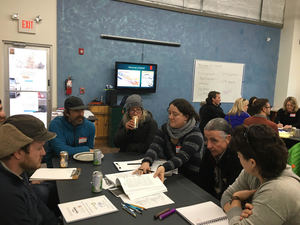 Design Charette We hosted a “design charrette” in February aimed at building community awareness, engaging key stakeholders and generating designs for our energy retrofit. We invited local builders, architects, weatherization professionals and manufactured home residents to design models of skirting that fir our project goals: energy efficiency, health and comfort. We sought improvements that were long lasting, safe and affordable. We split into teams and, working together, successfully generated new and creative ideas for improvements in this sector which we're excited to implement. During the event, I interacted with homeowners who'd received weatherization services from the Human Resource Council (HRC) and gained a sense of the profound effect an energy retrofit can have on an individual's life. A mobile home resident commented that the weatherization work the HRC recently did allowed her to be comfortable and was so thankful that her house “wasn’t cold in the winter anymore”. She also mentioned saving nearly $50/month on utility costs. Speaking to residents personally about the benefits of weatherization was really encouraging. The models created at the design charrette could improve many community members’ lives, making their homes more energy efficient, comfortable, and healthy. Bringing experts to the table was incredibly beneficial, and we plan to use the re-skirting ideas on manufactured homes in July and August. Re-skirting Five Manufactured Homes After all this good work, our Team is now poised to work on skirting replacements for 5 homes in the Missoula area and are in the process of creating a “design refine team”. This team will visit five homes and refine the "charrette" skirting designs based on the specifications of the home and wishes of the homeowner. If you have building, architecture or weatherization experience and are interested in helping with our skirting repair model, please reach out to me, Max. Stay tuned, and check for updates on the Home Rehab section of our web page. - Max Longo, Energy and Climate Coordinator
2 Comments
Quick survey: which of the following reasons would be most likely to persuade you to make a change, large or small, in your life: a) it would save you money; b) it’s the right thing to do; or c) it will improve your health? If you chose C, you’re in good company. Health is a big motivator for many people – and health professionals are some of the most trusted messengers. Combine this with the fact that research has demonstrated the effectiveness of emphasizing positive benefits in motivating people to act, and you get some interesting insights into how to communicate about climate change, especially with those who may not yet be completely convinced of its seriousness. Climate communication and health was the topic of our March monthly meetup last week – and it was a popular one! The community room at Imagine Nation was packed with folks who came to learn, meet others, and contribute to a great conversation about, well, how to have conversations about climate change. Many thanks to Beth Schenk, nurse scientist and Sustainability Director at St. Patrick Hospital, who facilitated the discussion. Beth started out by sharing some interesting statistics on perceptions about health and climate change among Americans. A recent groundbreaking study by Yale and George Mason Universities identified “6 Americas”: six different attitudes toward climate change that fall along a spectrum, from “Alarmed” on one end to “Dismissive” on the other. It’s a totally fascinating study – I highly recommend checking it out. One surprising insight from this study: the “Alarmed” segment was the only group in which the majority of participants could list a specific health impact of climate change. In other words, those who are aware of the health challenges posed by climate change are alarmed. In our current era of political polarization, it’s tempting to look at the above spectrum and wonder how we could ever bridge the gap. And yet, evidence suggests that changing the conversation around climate change can help move folks further along this spectrum. By emphasizing the co-benefits – those activities, processes, policies, and impacts – of taking action to mitigate climate change, especially in terms of both personal and community health, we can find messages that resonate with all 6 Americas. Wondering what I mean? At our meetup, we came up with some great examples of co-benefits – things that reduce our carbon footprint, while improving health – and then brainstormed some messages that could help convey the value of these efforts. Take a look: I hope these examples give you some inspiration for new ways to frame the climate conversation. While we cannot avoid talking about the urgent and serious negative implications of climate change, it is also critical to discuss climate solutions in a way that offers hope and inspires action. Optimism: Maintaining our Mental Health and Hope We ended the evening with a powerful discussion about hope and optimism when it comes to working on climate change. I know personally there are some days when I feel overwhelmed and sad – I’d guess that you do too. And that’s only natural. Solastalgia is a word coined in 2003 by philosopher Glenn Albrecht, to describe the feeling of distress we feel when we see the natural world around us changing. Solastalgia is a normal response to the reality of climate change. So how do we maintain optimism? This question reminded me of an essay I read a few years ago by the environmental writer David Orr, in which he described the difference between optimism and hope. Orr says, “Optimism leans back, putting its feet up, and wears a confident look, knowing that the deck is stacked. Hope is a verb with its sleeves rolled up. Hopeful people are actively engaged in defying or changing the odds.” So what is the secret? What are some characteristics of these hopeful people? We noticed that they:
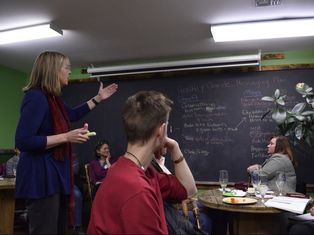 So, what would help US to be more hopeful? Here are just a few ideas that folks shared:
A Few Resources
Some suggested reading and viewing ideas that came up in our conversation:
-Abby 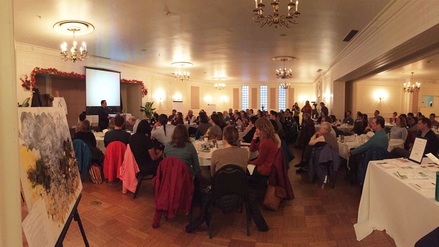 On Friday, over 100 people, from health professionals to city planners to affordable housing advocates and more, turned out for Climate Smart Missoula's third Community Climate Summit, this time to discuss all things climate and health. This diverse cross-section of the Missoula community heard from a panel of excellent speakers about current efforts to address public health challenges at the neighborhood level, the latest cutting edge research on local climate change projections (spoiler: it's going to get hot), and how we can work together to address the mental and physical health impacts wrought by a changing climate, especially for the most vulnerable groups like low-income folks and children. (It's no coincidence that's a key part of our Summer Smart program!) Speaking of Summer Smart - we also unveiled a new video about wildfire smoke - now live on our website. More videos to come soon! For the second half of the morning, we turned the tables: attendees had a chance to share their ideas for how to improve community health for all Missoulians in light of climate challenges. In breakout groups, there were insightful and productive conversations about wildfire smoke and extreme heat, healthy homes and emergency shelters, mental health, wellness and livability, and long-range planning strategies. So much good stuff! We were thrilled by the great turnout and dynamic conversations around the room. Like our previous summits, we were impressed with our community's creativity, collaborative spirit, and dedication. We know that, together, we can take bold action to create the Missoula we want to see.
Here are a few more good things to check out:
|
AuthorsAbby Huseth Archives
July 2024
Categories
All
|
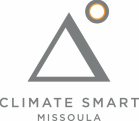
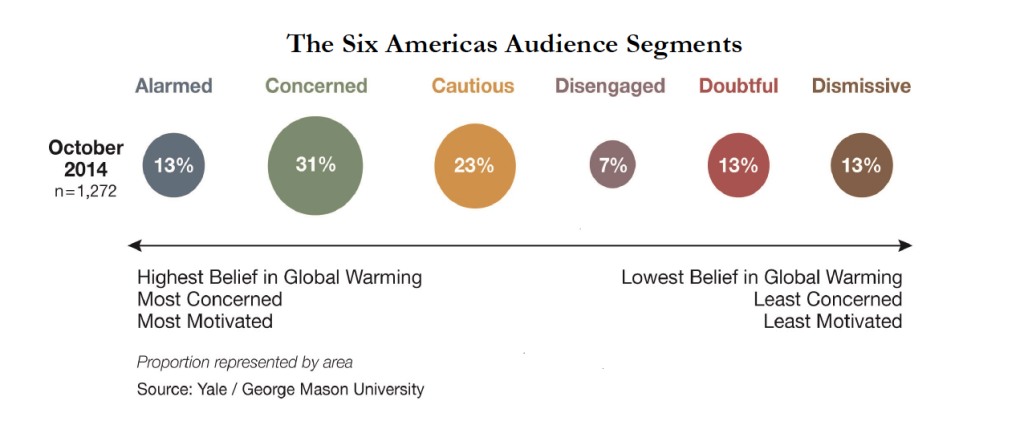
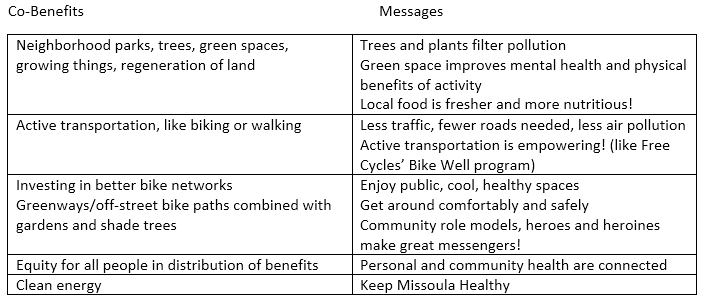
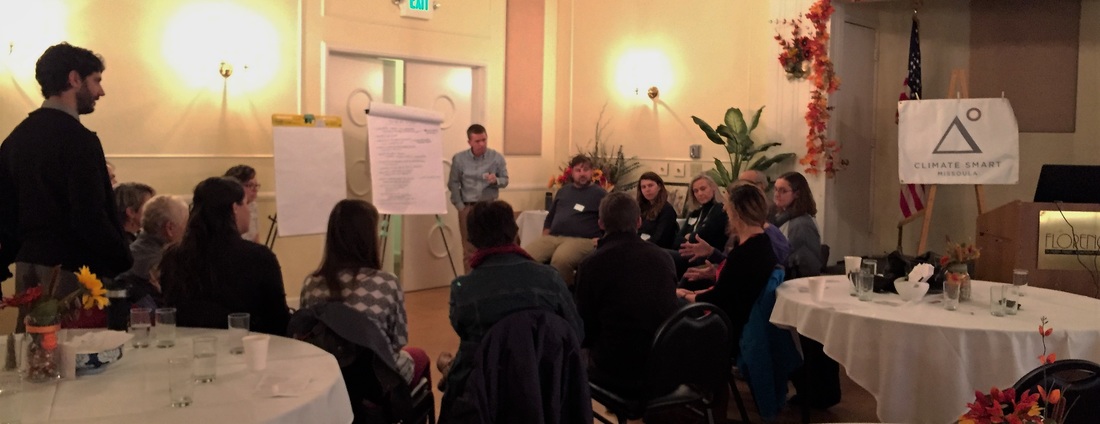
 RSS Feed
RSS Feed


